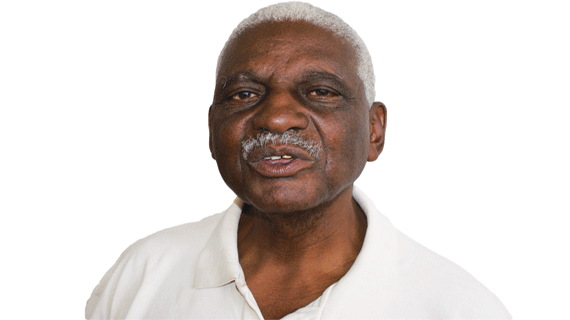
WE HAVE already agreed that language is culture and that its main purpose is to enable people of a community or country to communicate so they can do things together and work together as a united group.
That communication between individuals among people must be clear and have no room for misunderstandings. Language is the vehicle for that mutual interaction between people.
This point emphasises the need for developing a common vocabulary so that the word “wrong” will convey the same meaning to everybody in that community.
Otherwise there will be misinterpretations and members of that community will do different and opposite actions when prompted by that one word.
Culture implies that all members of a particular community understand the same thing and react in the same way.
The word “poison” must be understood by everyone to mean a substance that kills so that whenever and wherever that word appears the people will shun any substance that is labelled as poison. The warning kakungenwa on a sign post sends the same message to anybody who reads it.
What all this is saying, is that people of the same culture must use the same accepted words joined in the same accepted manner to form phrases and sentences.
Does it not make sense that as time passes, languages develop their grammars and other syntactical rules so that a case can always be made for what is correct language and what is not, and even to the extent of defining correct pronunciation of words?
- Chamisa under fire over US$120K donation
- Mavhunga puts DeMbare into Chibuku quarterfinals
- Pension funds bet on Cabora Bassa oilfields
- Councils defy govt fire tender directive
Keep Reading
Sometimes people are heard saying that Ndebele is a difficult language, so much so that many students do not choose it as an option at school because it has too much grammar and many rules. The question is, which language is without grammar and rules? English for example, has relaxed somewhat the teaching of formal grammar and so on.
With hindsight knowledge, one can safely say that English language, a strong culture agent, has lost its glory and that communication in that language is no longer as effective. The English have lost something of their culture.
In order for us to increase effective communication as Ndebele community, there is greater need for us to develop our language so that we can interact more effectively.
We need good dictionaries to explain meanings of words so that we understand in the same way from Beitbridge to Binga and from Plumtree to Kwekwe or Mwenezi or wherever your Ndebeleland ends.
We have also said that the basic essential elements are vocabulary and sentence structure. Where are books on vocabulary and sentence construction, idioms and other cultural sayings called proverbs?
Think of the following words for a moment and say how often you have used them say, the last two weeks: ukhezo, umuthi, isihlalo, khukhuza, tsheda, ngomhlubulo, emthimbeni, ngcono, khithi, eliyimpunga. They sound familiar don’t they? They are common throughout and are understood well with their connotative meanings. Some words, however, become corrupted perhaps due to misinterpretation or ineffective articulation which makes the receiver hear it wrongly.
That may be the result of such wor ds as : bhokoza for bhoboza, phekelezela for phelekezela, qibilizela for qilibezela, qoqomela for xoxomela , gonqomisa for gomonqisa .
Sadly, Hadebe’s dictionary Isichasamazwi Sesindebele has validated some of these errors and many more. That is a signal that there is a need for more researched Ndebele dictionaries that will provide correct Ndebele in all aspects.
A big challenge to all!
Generally speaking, Ndebele is not lacking in the vocabulary of the things and ideas that the country has had experience with . . . . objects and actions and concepts.
In terms of the history of the language, most words are current rather than obsolete. Words such as umhlolo, umkhandlu, inqulu , umhluzi , isibavu, cenga, isilakalaka, minyelel,a esiyimpunga, bhazalala, ngcothula, ithangazi are within our everyday experience. How often do we use these? Which and whose words do we use in their place? Read the following sentences and make them part of your uncorruptible speech: Unyawo lwami lulenkantsho.
Imota le iyabila amanzi. Umuhluzi wenyama le unquma amanga. Xeka lapha phansi kwami. Hatshi bo ungabe ulokhu ungijinga ngombhedo wakho lowo . He-e! uyadela wena olala usuthi nsuku zonke. Manje-ke usufike koNgqe, izaphela du yonke inkani. Hawu, bakithi , akungizwele sinini sami. Surely Ndebele is such a beautiful and expressive language.
We must recall into use many of our beautiful words that have powerful meanings: ukunina ukukhwabitha thungatha gcizelela phetha indaba uqhatshi khukhumeza umkhwenyethu londoloza isinqumo loba isiphamaso umyinga jwam’ khekheleza. Do not try to translate them, you cheapen their meanings.
Does the above list revive and extend your vocabulary?
But what is the cultural connotation of each word such as umkhwenyethu? Or say, induku.
What different thoughts come flooding into your mind?
This word has a different cultural meaning to a non Ndebele speaker.
That is why we insist that to give the meaning of a word is to conjure its cultural and conceptual ramifications.










